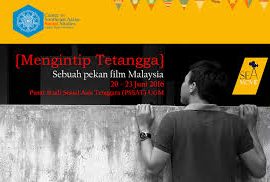One of the consequences of diversity in Southeast Asia is the emergence of many dynamic and never-ending questions to discuss. One question that keeps us thinking is, how does this region survive with hundreds of local beliefs and at the same time apply public policies regarding religious rules? Dr. Dicky Sofjan discussed the answers to this question in the SEA Talks # 8 discussion, on the afternoon of Thursday, June 16, 2016. In his presentation, Dr. Dicky explained that the logic of religion in society is often different from public policy. This can not be separated from the influence of the democratic system adopted by almost all countries in Southeast Asia. According to him, the application of democracy raises the existence of unintended consequences, as well as the phenomenon of abuse of laws, decentralization that causes inequality, and also multi-interpretation of the beliefs of one group. On the other hand, the state also has great authority through the prevailing system. Like Malaysia, which applies Islam as a national religion and is listed in the constitution. This rule then legitimizes the expulsion of Ahmadiyah worshipers in one of the mosques in Malaysia as well as rules that lead to minority discrimination.
June
One of the consequences of the diversity that exists in Southeast Asia is the emergence of many dynamic questions that never expires to be discussed. One of the questions we keep thinking about is, how does this region survive with hundreds of local beliefs and at the same time impose public policy on religious rules? Dr. Dicky Sofjan discussed the answer to this question in SEA Talks # 8, on Thursday afternoon, (16/06/16). In his presentation, Dr. Dicky explained that the religious logic in society is often different from public policy. This can not be separated from the influence of the democratic system adopted by almost all countries in Southeast Asia. According to him, the application of democracy leads to unintended consequences, such as the phenomenon of misuse of the law, decentralization that causes inequality, as well as multi-interpretation of the beliefs of one group. On the other hand, the state also has great authority through the prevailing system. Just as Malaysia that applies Islam as a national religion and lists it in the constitution. This rule then legitimizes the expulsion of Ahmadiyah pilgrims in one of the mosques in Malaysia and also the rules that lead to minority discrimination.
How far do we know our neighbors? Neighbors are probably the closest people who actually keep the enigma and do not prejudice. But, cinema can help you uncover our nearest neighbor’s curtain: Malaysia. There are five movie options that can be your window to peek our neighbors Malaysia. Sepas made by Yasmin Ahmad reveals intricate interethnic relations in Malaysia. Meanwhile, Ho Yuhang through Rain Dog climbs the dark alley of ethnic Chinese conditions in Malaysia. Similarly, Songlap made by duo Effendy Mazlan and Fariza Azlina Isahak unmistakably reveals the other side of the sparkling capital of Kuala Lumpur. By contrast, Dain Iskandar Said via Bunohan brings you to recognize the face of Malaysia’s peripheral that is not less complicated. And, lastly, Mamat Khalid invites you to taste the taste of classic Malay cinema wrapped in ‘noir movie’ style in the Kala Bulan Mengambang which is loaded with contemporary Malaysian political allegories. So, watch the Malaysian cinema and seize the opportunity to recognize it. (Budi Irawanto)


